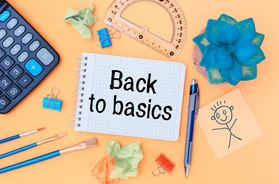We are living in a time when the source, supply, availability, and cost of energy can change at a moment’s notice. The uncertainty of the availability and cost of petrol, diesel and gas affects the cost and reliability of goods and services within our community. Supply chains, that have taken decades to establish, have increasingly weaker links including the supply of food staples because of transportation insecurities. Multiple issues are manifesting worldwide and very few people are exempt from the significant effects this is having on businesses and households. As individuals we have little control over any of these factors. Collectively we can metaphorically vote with our feet and either support or withdraw our support from the institutions that are causing or using these market conditions to their advantage.
 One thing in the home energy equation that will always remain reliable and consistent is that being energy efficient within the home, will result in reduced energy consumption which consequently results in a lower monthly or quarterly bill. For some households adopting and practicing home energy saving tips can result in savings of as much 30 or even 50% of a household’s energy consumption. Frequently this can be achieved without compromising lifestyles.
One thing in the home energy equation that will always remain reliable and consistent is that being energy efficient within the home, will result in reduced energy consumption which consequently results in a lower monthly or quarterly bill. For some households adopting and practicing home energy saving tips can result in savings of as much 30 or even 50% of a household’s energy consumption. Frequently this can be achieved without compromising lifestyles.
Once the tricks are known, for the household to benefit, they need to be exercised by every family member, every day, of every week, of every year. Whilst that may sound like a heavy commitment, it need not be because once good energy efficient practices are repeated, they become habitual. Habits, either good or bad, are performed automatically and are usually done without thought. Bad habits produce poor outcomes whereas good habits produce desirable and productive outcomes. Simply put, for a home to experience savings on home energy expenditure, all it takes is for every member of the household to habitually, even mindlessly, lead energy efficient lifestyles. The first of these basic principles is to recognise and then reduce waste.
Statistically, leaving electrical items turned on at the wall, when not in use, represents about 10% of a home’s energy bill. Most appliances in the home run on low DC voltage which needs to go through a step-down transformer before it powers the appliance as the electricity supplied at the socket in Australia is 240 volts AC. These transformers, when idling or sitting in standby mode, become hot and are really just little heaters that, unless they are being used, consume energy with no productivity. The punch line is, if you are not actively using an electrical appliance, disconnect it, or turn it off at the wall. There is a 10% saving for most households easily achieved and much more for homes with more electrical gadgetry including multiple gaming machines left on standby 24/7.  Heating or cooling multiple rooms in a home during peak summer or winter is not as efficient as isolating family members into one room with curtains drawn, doors closed and traffic in and out sensibly managed. The first issue that needs addressing when any household decides to become more energy efficient is waste. Why pay for something and get no benefit? I frequently say, “the most expensive kilowatt hour of energy you will ever buy is the one you didn’t need in the first place”. Turn off your hot water system if you are going to Paris for two weeks. Why pay to heat water you will never use?
Heating or cooling multiple rooms in a home during peak summer or winter is not as efficient as isolating family members into one room with curtains drawn, doors closed and traffic in and out sensibly managed. The first issue that needs addressing when any household decides to become more energy efficient is waste. Why pay for something and get no benefit? I frequently say, “the most expensive kilowatt hour of energy you will ever buy is the one you didn’t need in the first place”. Turn off your hot water system if you are going to Paris for two weeks. Why pay to heat water you will never use?
If you do decide you want to pay less for your energy in a world where energy costs are both volatile and excessive, the first and easiest place to start is to identify where you can reduce waste. Even if that is all you do, everyone in the home must participate. Bribing half of the firing squad will not achieve the objective. Everyone must participate. When your household bill is reduced by 10, 20 or even 30% so easily, other energy habits can be considered by household members who can actively see the positive benefit to effort ratio. If you want to become more energy efficient or have been that way and over time have drifted back into some not so productive habits; regroup, and simply identify and change any energy wasting habits. The habits needed are not difficult to develop and the results are immediate with the benefits confirmed at the end of the next bill cycle.
John Lynn
